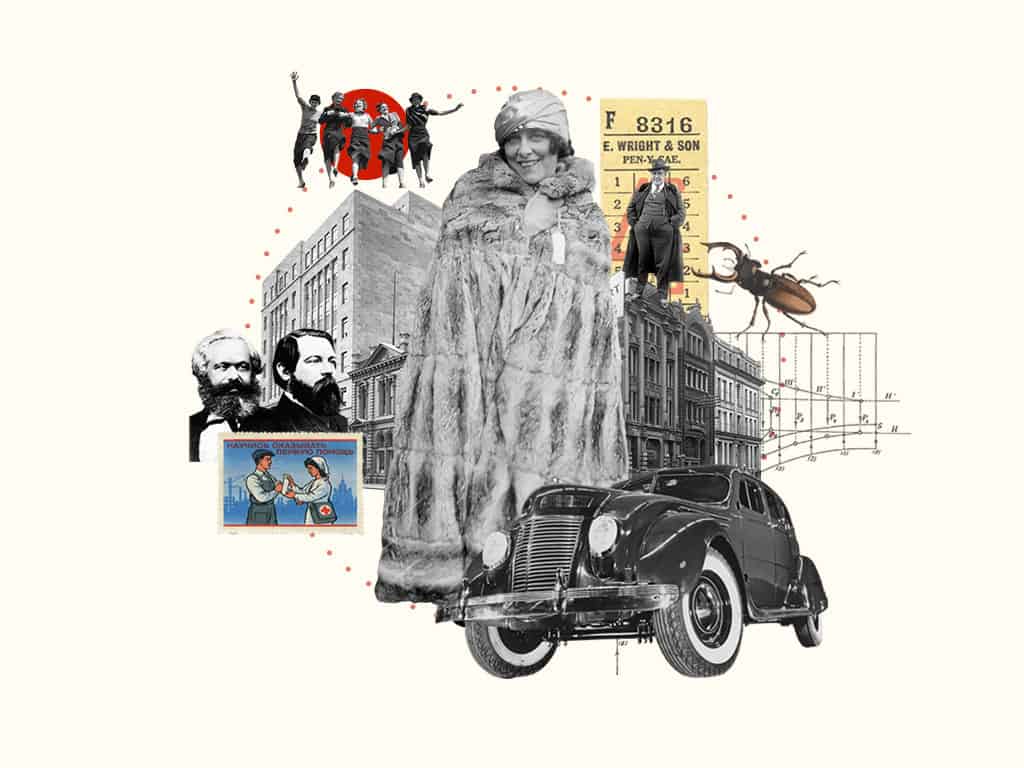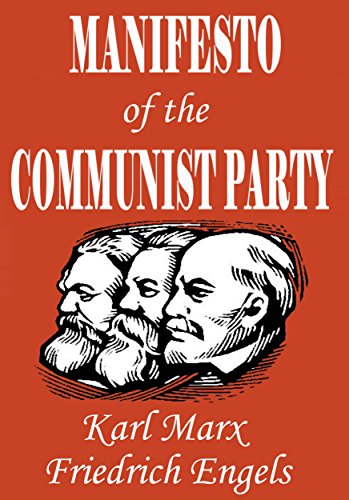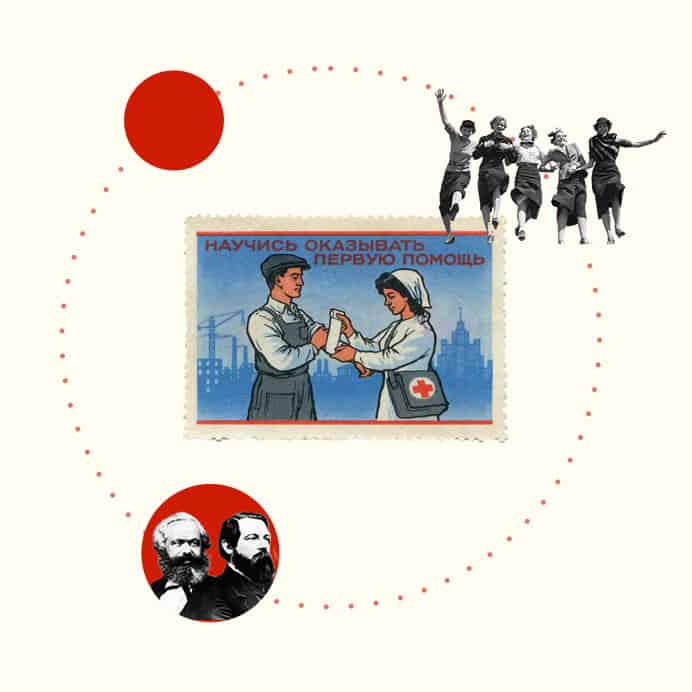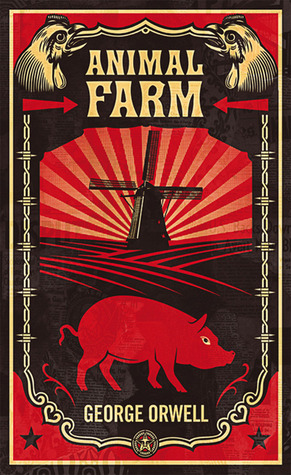The history of all hitherto existing society is the history of class struggles
Karl Marx & Friedrich Engels

Manifesto of the Communist Party
Karl Marx & Friedrich Engels

The text is available online through Gutenberg Project
The text remains one of the principal critiques of the post-industrial revolution political, economic, and social systems of Europe.
Composed in the backdrop of the 1840s revolutions in Europe, the Manifesto of the Communist Party was published in February 1848 by Karl Marx and Friedrich Engels. The text remains one of the principal critiques of the post-industrial revolution political, economic, and social systems of Europe. The authors begin the pamphlet stating that the history of all human societies are histories of class struggle, where one class is constantly exploited by another. The document presents an excellent summary of the history of European colonization and expansion that began in the sixteenth century with Columbus’ journey and elaborate on how the subsequent growth of the international markets led to the rise of the bourgeoisie in Europe. A class whose accumulated wealth was based on colonization and exploitation of European industrial working class or proletariat. Divided into four chapters the pamphlet explains the goals and demands of Communism and argues against accumulation of wealth by few individuals. Recognizing the inequalities in wealth, the authors demand abolition of bourgeoisie controlled private property. They extend their support for the formation of a community of women and demand abolition of child labor in the factories, and free education for all children in public schools. The authors also argue for abolition of countries and nationalities.
Why This Text is Transformative?
Marx and Engels argued that the capitalistic system established in Europe was inherently flawed, and presently our students are experiencing a world that is reeling with the aftereffects of a highly industrialized world.
The Manifesto of the Communist Party is a pamphlet that discusses economic disparity. The primary aim of the text was to demand equal rights for all social classes. The inequalities of wealth discussed by the authors are ubiquitous in our present society, and the first-year students enrolled in community colleges are quick to recognize and can relate with the disparities of wealth discussed in the text. Marx and Engels argued that the capitalistic system established in Europe was inherently flawed, and presently our students are experiencing a world that is reeling with the aftereffects of a highly industrialized world. The present climate change and environmental degradation, food insecurity, pollution, inequality in pay, and refugee crisis are all products of the industrialized capitalistic world.
A Focused Selection
Study Questions

It is advisable to read the entire Manifesto, if not possible Chapter I ‘Bourgeoise and Proletarians’ should be discussed in the first class and chapter II ‘Proletarians and Communists’ should be discussed in the second class.
1) It would be beneficial to start discussing the text by asking students to create a list of terms from the text that are unfamiliar to them.
2) How do Marx and Engels define the bourgeoisie and the proletariat?
3) The Manifesto begins with a startling claim that the human history is a history of class struggle. Do you agree with this claim? Do you think Marx and Engels have reduced the history of human civilizations to class-struggle and have ignored cultural and artistic historic contributions?
4) In part II of the pamphlet Marx and Engels propose ten goals of Socialism, including “…abolition of the distinction between town and country, and free education for all children in public schools.” Do you agree with their demands? Do you think these demands are practical?
5) How would you define the concept of Freedom as argued in the Manifesto?
6) How do you think that the “The discovery of America, the rounding of the Cape, opened up fresh ground for the rising bourgeoisie”?
7) Do you think that the Manifesto has any relevance today?
Building Bridges
A Recommended Pairing

Pairing the reading with Animal Farm by George Orwell would be recommended.
Supplemental Resources
THE COMMUNIST MANIFESTO – FULL AudioBook – by Karl Marx & Friedrich Engels
Text Mapping
Discipline Mapping
Political Science/Government
History
Sociology
Philosophy & Religion
Page Contributor



